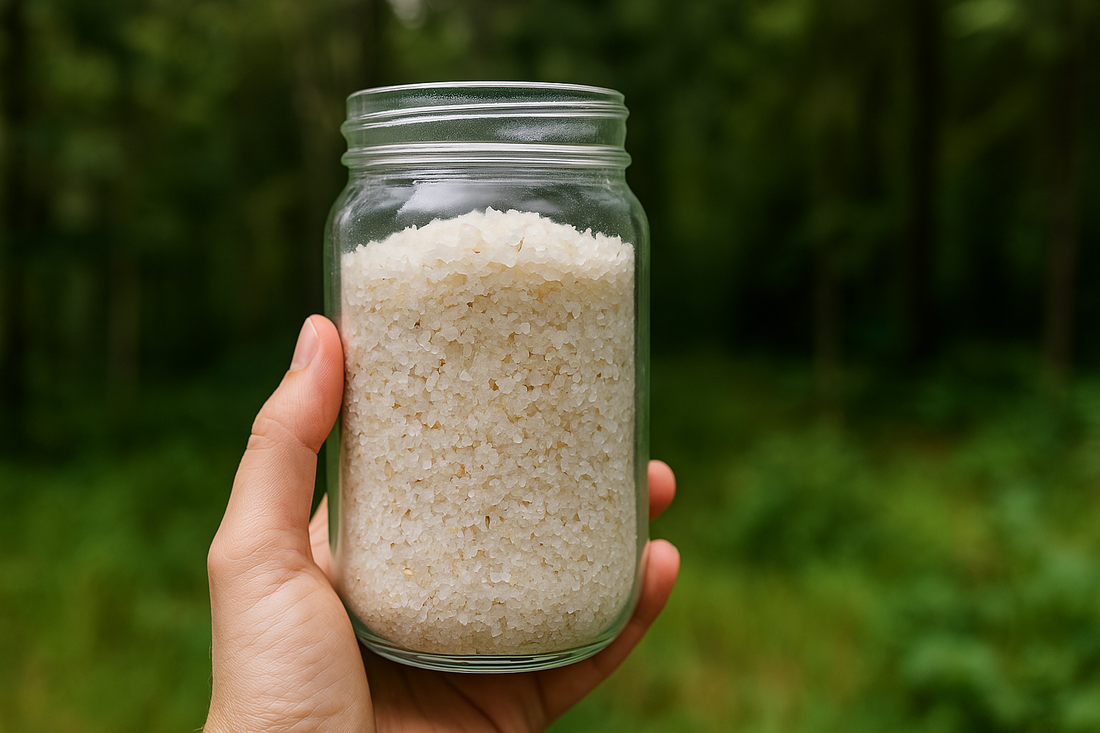
What Is the Best Relaxing Bath Soak?
Share
What Is the Best Relaxing Bath Soak?
After a long day, nothing feels better than sinking into a warm, soothing bath. But what if you could enhance that experience with the perfect bath soak? Whether you're looking to relieve stress, ease sore muscles, or simply indulge in a moment of self-care, choosing the right bath soak can make all the difference. From Epsom salts to essential oil-infused blends, this guide will help you discover the best options for ultimate relaxation.
Briefly introduce the concept of a relaxing bath soak.
Discuss the importance of self-care and relaxation in modern life.
Mention how bath soaks are a great way to unwind and de-stress.
Overview of the blog’s aim to educate beginners on choosing the best relaxing bath soak for their needs.
The Benefits of a Relaxing Bath Soak
Physical Benefits
Stress relief: Discuss how warm water and soothing ingredients help release muscle tension.
Skin hydration: Explain how different bath soak ingredients moisturize and nourish the skin.
Improved circulation: Mention the effect of a warm bath on blood circulation and overall body relaxation.
Mental and Emotional Benefits
Mood enhancement: Detail how bath soaks help to reduce anxiety, improve mood, and promote emotional well-being.
Mindfulness and relaxation: Discuss the meditative aspect of soaking in a bath and how it promotes mental clarity.
Key Ingredients to Look for in a Relaxing Bath Soak
Epsom Salt
Discuss the benefits of magnesium and how it aids in muscle relaxation and stress relief.
Mention common uses for Epsom salt in bath soaks.
Lavender
Talk about the calming properties of lavender and how it can help reduce anxiety and improve sleep.
Recommend lavender-based bath soaks for evening relaxation.
Chamomile
Discuss chamomile's soothing qualities, both for the skin and mind.
Mention its ability to ease tension and promote a sense of calm.
Dead Sea Salt
Explain how Dead Sea salts help detoxify and rejuvenate the skin.
Mention the mineral content and its healing properties.
Oatmeal
Detail how oatmeal soothes irritated or sensitive skin.
Discuss its ability to provide a comforting, softening effect on the skin.
Essential Oils
Highlight different essential oils such as eucalyptus, peppermint, and rose, each with its specific benefits.
Discuss how to use essential oils in bath soaks for aromatherapy and relaxation.
Choosing the Right Bath Soak for Your Skin Type
For Dry Skin
Suggest bath soaks with moisturizing ingredients like shea butter, coconut oil, and honey.
Recommend milder, nourishing formulas for hydration.
For Sensitive Skin
Discuss the importance of using gentle, fragrance-free or hypoallergenic bath soaks.
Suggest ingredients like oatmeal or chamomile for calming sensitive skin.
For Oily Skin
Suggest bath soaks with ingredients like tea tree oil, which can help balance oil production.
Discuss the importance of exfoliating ingredients like salts for deep cleansing.
The Best Bath Soaks for Stress Relief
Epsom Salt Soaks
Dive into the science behind magnesium's stress-relieving properties.
Provide recommendations on using Epsom salts for a relaxing and detoxifying bath.
Lavender-Infused Soaks
Discuss how lavender works in reducing stress and anxiety.
Suggest products or DIY options for lavender bath soaks.
Aromatherapy Blends
Mention how combining calming scents like lavender, eucalyptus, and rose creates a soothing atmosphere.
Discuss how to choose or create your ideal blend of essential oils for a stress-relieving bath soak.
DIY Relaxing Bath Soak Recipes
Simple Epsom Salt Soak
Provide a simple recipe using just Epsom salt, essential oils, and perhaps a few other ingredients.
Herbal Bath Soak with Lavender and Chamomile
Share a recipe for a calming herbal bath using dried lavender, chamomile flowers, and sea salt.
Detoxifying Green Tea Bath Soak
Offer a DIY bath soak recipe using green tea, sea salts, and essential oils for a detoxifying experience.
How to Use a Bath Soak for Maximum Relaxation
Proper Bathing Techniques
Offer advice on the ideal bath temperature and soaking duration.
Discuss the importance of relaxation techniques like deep breathing during the soak.
Creating the Right Ambiance
Discuss how lighting, music, and aroma can enhance the relaxing effects of a bath soak.
Recommend setting the mood with candles, soft music, and calming scents to create a tranquil environment.
Popular Relaxing Bath Soak Products
Pre-Made Bath Soaks
Provide an overview of popular relaxing bath soak brands and products (e.g., Dr. Teal’s, Lush, Kneipp).
Discuss the key ingredients in each product and the benefits they offer.
Luxury Bath Soaks
Mention higher-end options such as spa brands, luxury bath salts, and bath oils for an indulgent experience.
Discuss the differences between drugstore and luxury bath soaks.
Tips for Maximizing the Effects of Your Relaxing Bath Soak
Hydration Before and After
Explain why it’s important to hydrate before and after your bath to help the body detoxify and recover.
Combining Other Relaxation Practices
Suggest pairing your bath soak with other relaxing activities, such as reading, journaling, or meditation, to deepen the sense of calm.
Frequency of Use
Discuss how often to use bath soaks for maximum benefit without over-drying the skin or overstimulating the senses.
Conclusion
Incorporating relaxing bath soaks into your wellness routine offers numerous benefits, from alleviating stress and promoting relaxation to nourishing the skin and enhancing overall well-being. Bath soaks with ingredients like Epsom salt, lavender, and essential oils can provide a soothing, detoxifying experience that helps improve mood, relax muscles, and promote restful sleep. It's important to experiment with different bath soaks to discover the one that best suits your individual needs and preferences, whether you seek stress relief, skin hydration, or a deeper sense of calm.
